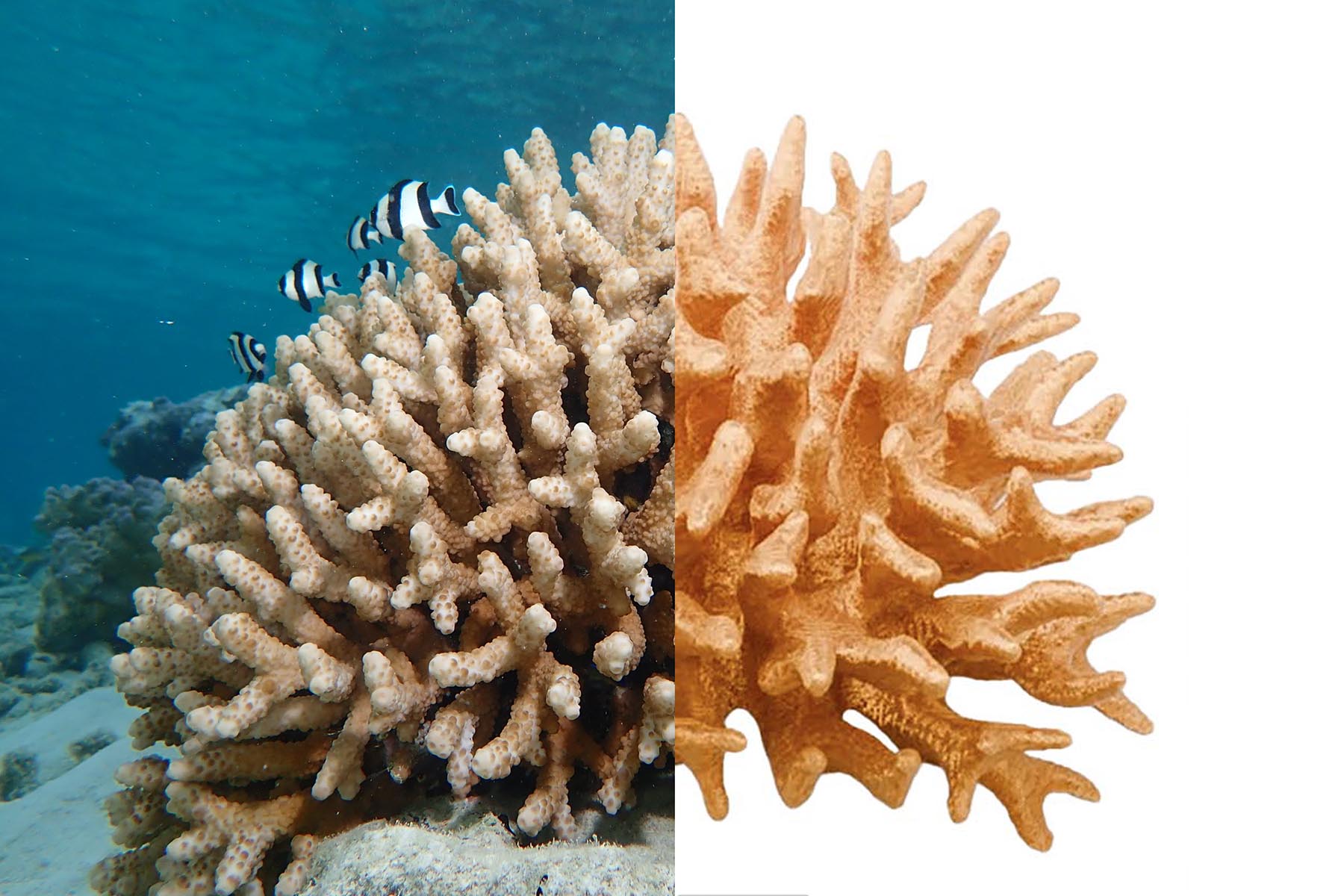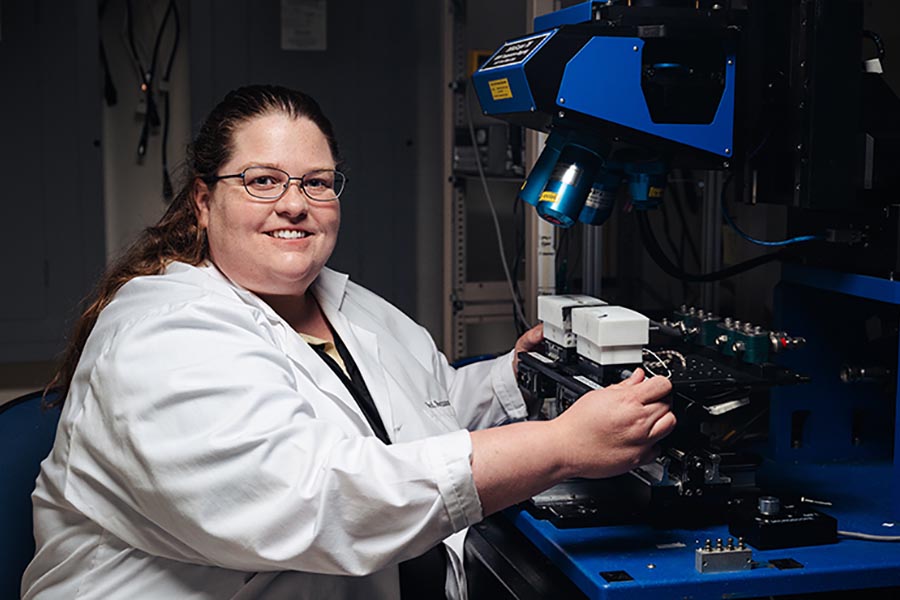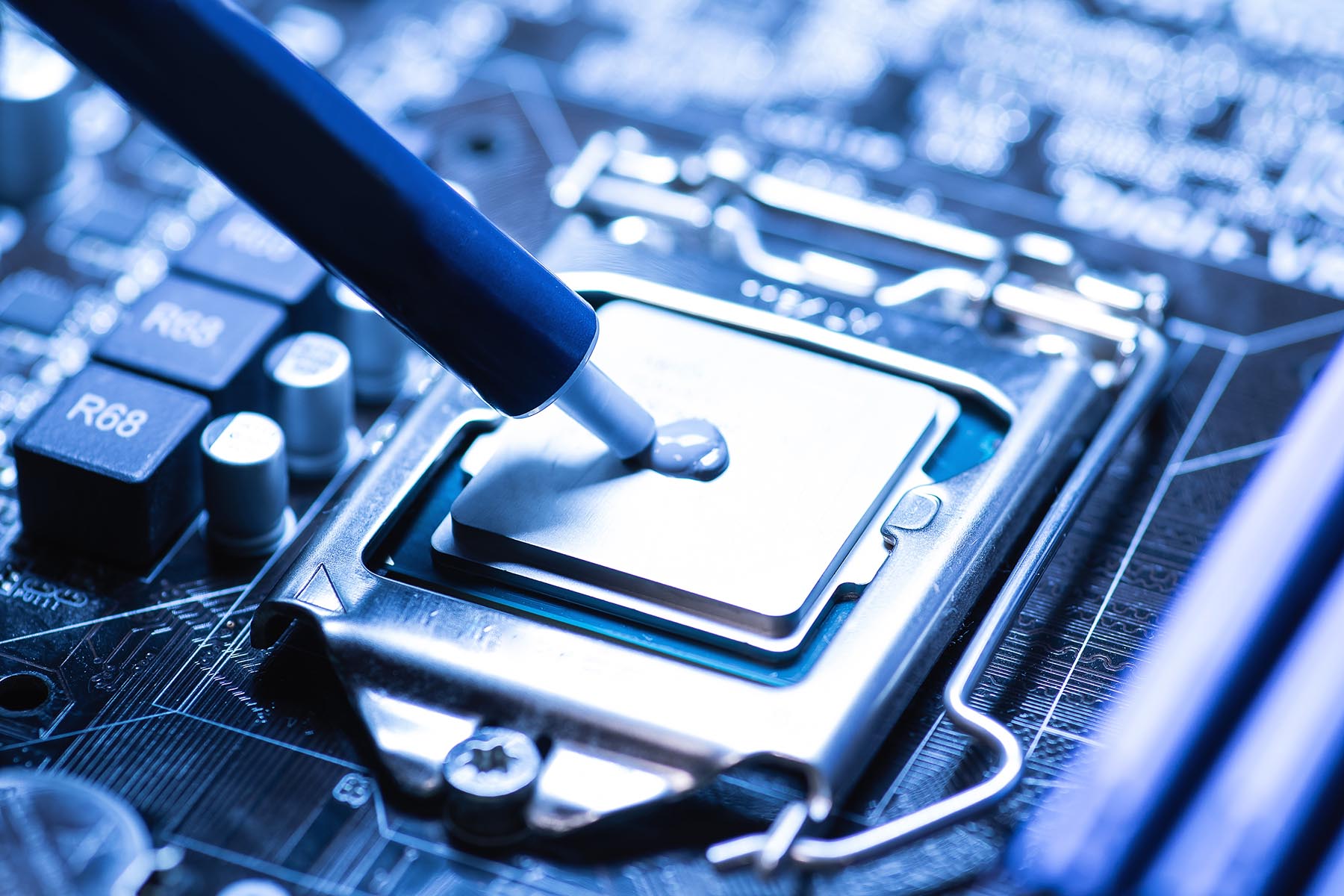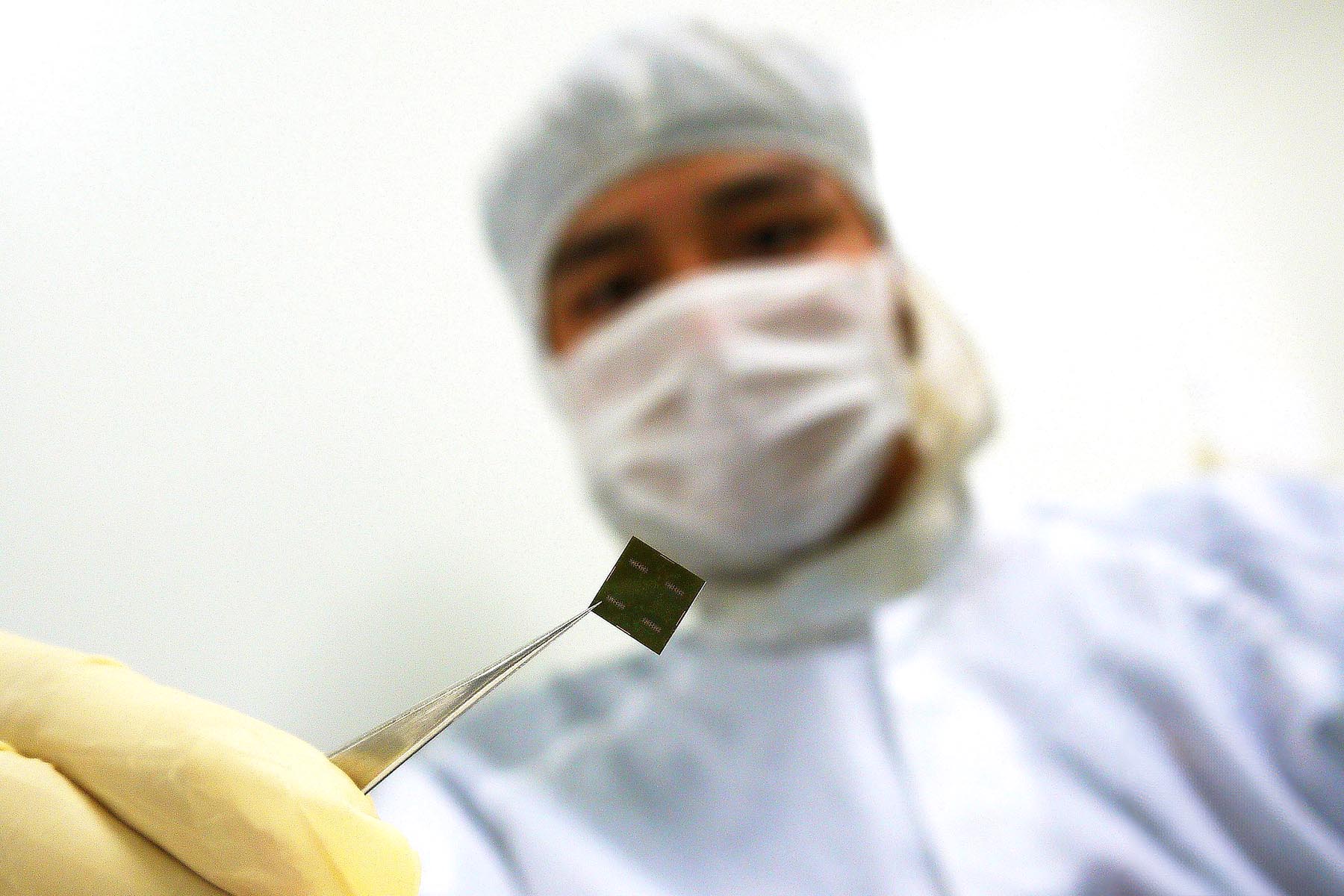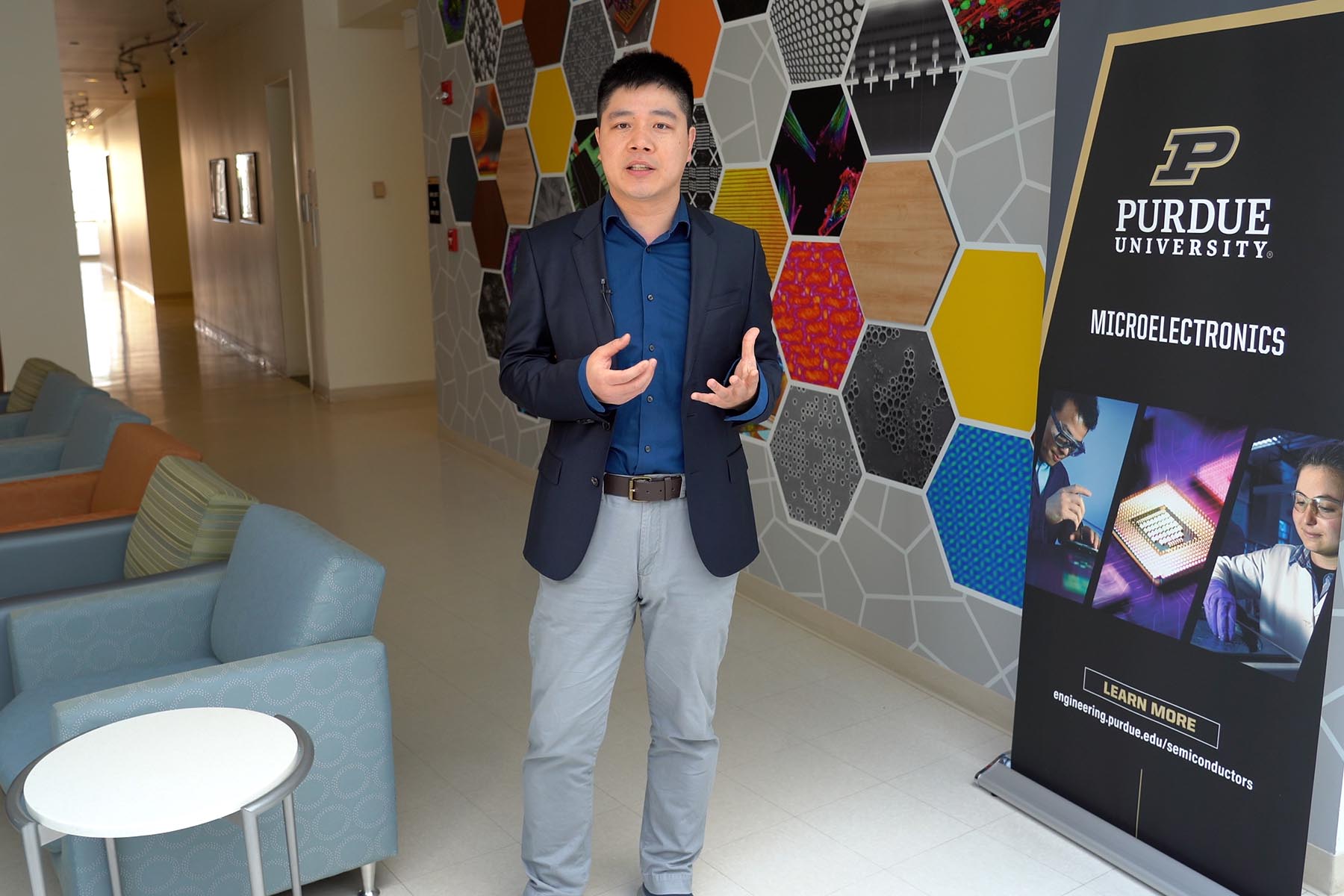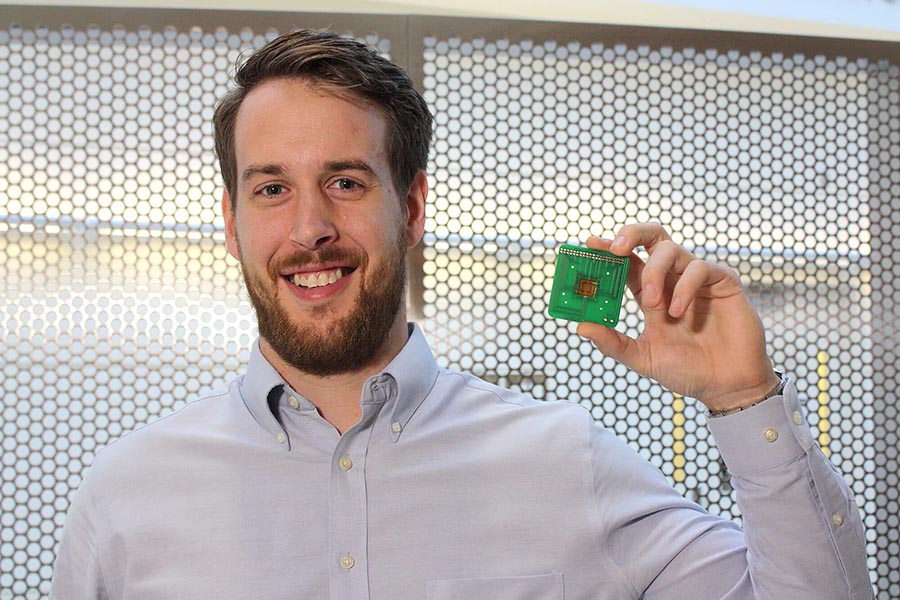Semiconductors
There's no doubt that our 21st century modern lives depend on silicon. Semiconductors were originally invented in the United States, but over the years, manufacturing and innovation increasingly moved overseas. Purdue is now reclaiming leadership in semiconductors and microelectronics, with a robust program of research and development based right here in West Lafayette. In addition to multiple collaborations with semiconductor manufacturers, we host research facilities found nowhere else on earth. The Birck Nanotechnology Center hosts one of the largest cleanrooms in academia, while the Cooling Technologies Research Center is one of the world's leading authorities on thermal management of microelectronics.
Faculty in Semiconductors
- Renewable Energy Materials (physics-based energy yield predictions, sustainable PV and energy storage materials, recycling)
- Electro-Optical-Thermo-Mechanical Reliability (in-situ and in-operando accelerated stress tests)
- Heterogeneous Integration & Advanced Packaging (sub-10 μm pitch interconnects, low-loss interposers)
- Harsh Environment Electronics Integration (high temperature Pb-free solders and nano-thermal interfaces)
- Computational and experimental solid mechanics focused on fatigue, fracture, and multi-physics phase evolution problems
- Computational techniques including Finite Element Analysis (FEA), Isogeometric Analysis (IGA), geometric modeling, CAD and optimal design
- Heterogeneous Integration and Advanced Electronics Packaging with a focus on thermomechanical behavior, reliability, and electrical-thermal-mechanical co-design
- Two-Phase Flows and Heat Transfer
- High-Heat-Flux Thermal Management Systems for Several Applications, e.g., Outer Space Missions, Electric Vehicles, Ultra-Fast Charging Systems, Electronics Cooling, Avionics, Nuclear Reactors, Metal Manufacturing, Superconductors, Data Centers, etc.
- Gravitational Effects
- Experiments onboard the International Space Station (ISS)
- Two-Phase Flow Instabilities
- Fluid-Structure Interactions & Non-Newtonian Fluids in Biological Systems
- Advanced electronics cooling and packaging technologies
- Phase-change transport phenomena
- Additive manufacturing of thermal management components
- Topological optimization and machine-learning-based design
- Thermal systems analysis for electrification and energy efficiency
- Microscale and nanoscale surface engineering for enhanced thermal transport

